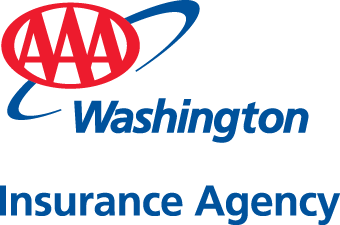Read Before You Drop These Two Car Insurance Coverages
If you’re eager to drop or skip buying collision and comprehensive auto coverage, think again.
Granted, these extra types of coverage add several hundred dollars to your premiums each year, and they are optional in Washington, but most auto lenders require both for as long as they hold a lien on the vehicle.
You may assume that the best time to lose these coverages is when you pay off the car loan. In some cases, it makes sense to drop collision and comprehensive coverage when you can. In many other cases, you should keep the extra coverage in place long after you hold the title free and clear.

Insurance Types
First, there is a difference between collision and comprehensive coverage. These policies are often bundled together, but you can choose to carry just one or both.
Collision insurance covers damage to your car when you have an accident. If you back into a tree or hit another car, your collision insurance would kick in to cover the damage to your vehicle.
In contrast, comprehensive insurance is more like bad-luck insurance. It covers you if your car is damaged by an unexpected event, such as a flood or hail. Comprehensive insurance also covers you if your car is vandalized or stolen, or if you hit an animal on the road.
Notably, collision and comprehensive insurance does not protect you from liability if you cause an accident. In Washington state, you must carry a minimum level of liability insurance. Liability covers damage to the other driver’s vehicle and medical expenses. With liability, the question is never when to drop it, but how much liability you should carry. Liability, collision and comprehensive insurance are often all sold together under the term “full coverage.”
Although the choice is purely a personal one, there are some general rules of thumb about the right time to consider dropping the extra coverage.
Download our Insurance 101 guide for free.
Consider Car Value
The most important consideration is the value of your car. If you are driving a newer model BMW or a Porsche, your car is going to be worth much more than a 10-year old clunker with more than 100,000 miles on the odometer. In the case of a valued sports car or luxury vehicle, the replacement costs will be high. It makes sense to carry collision and comprehensive insurance to protect that value.
On the other hand, if you have an old truck parked out back that you rarely drive, it is likely not worth the extra premium costs for collision and comprehensive. The cost of carrying this insurance can be high, particularly if you are insuring multiple cars or buying collision insurance for a teen or high-risk driver. Between 2013 and 2017, the average annual cost of collision insurance in Washington state was $297 and $113 for comprehensive insurance, according to the Insurance Information Institute.
When considering dropping coverage, you also need to factor in what it will cost to replace the car if it is totaled. Say your Honda is worth around $10,000. If you total that car and don’t have collision insurance, you are going to have cover the entire replacement costs to buy a similar vehicle.
Weighing Deductibles
Another factor to consider in dropping comprehensive and collision coverage is the deductible. The deductible can be $1,000 or more. If you have a $1,000 deductible, you will have to pay the first $1,000 in repairs out of pocket. If your car needs to be replaced, the deductible also kicks in. Say the replacement value is deemed to be $6,000. You will only get a check for $5,000, if the deductible is $1,000.
Importantly, insurance adjusters usually make a conservative estimate of the actual cash value of the vehicle. They will pay out what they believe a buyer would have paid for the vehicle, if there had been no accident. This is typically considerably lower than it will cost to replace the car.
The deductible also may sometimes exceed the value of the vehicle. So, high deductible collision and comprehensive insurance may pay out little or nothing on an older car. Of course, you can usually choose to lower the deductible, but that will significantly raise the cost of your premium.
Keep One, Drop the Other
You may consider dropping one of these coverages and keeping the other. Remember that collision and comprehensive insurance are usually sold together, but they provide different coverage and can be dropped individually.
If you are considering holding on to one, you need to ask yourself whether you want to bet on your luck or on your safe driving habits?
Collision insurance covers you for the damage to your car when you make a mistake and hit an object. If you are willing to drop it, you are betting on your good driving habits and your ability to avoid accidents that cause damage to your car.
Comprehensive coverage, however, protects you against random acts that are out of your control, such as when a deer runs out of the woods at dusk and slams into your passenger-side door. Comprehensive coverage can protect against many unforeseen events. The average cost of comprehensive insurance is also lower. For that reason, many drivers prefer keeping comprehensive coverage longer than collision insurance.
Bonus Tip: Comprehensive insurance covers glass. So, if a rock hits and shatters your windshield or someone breaks one of your car windows, the replacement cost is covered. You must note, however, that this coverage is subject to the comprehensive insurance deductible, which might run close to the cost of replacing a windshield or a window. With that in mind, speak with your insurance agent about adding an endorsement that lowers or eliminates your deductible for glass coverage.
– Written by Victor Whitman, last updated in October 2022.
– Top image by Monkey Business Images/Getty Images

